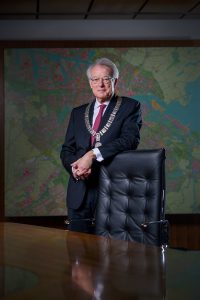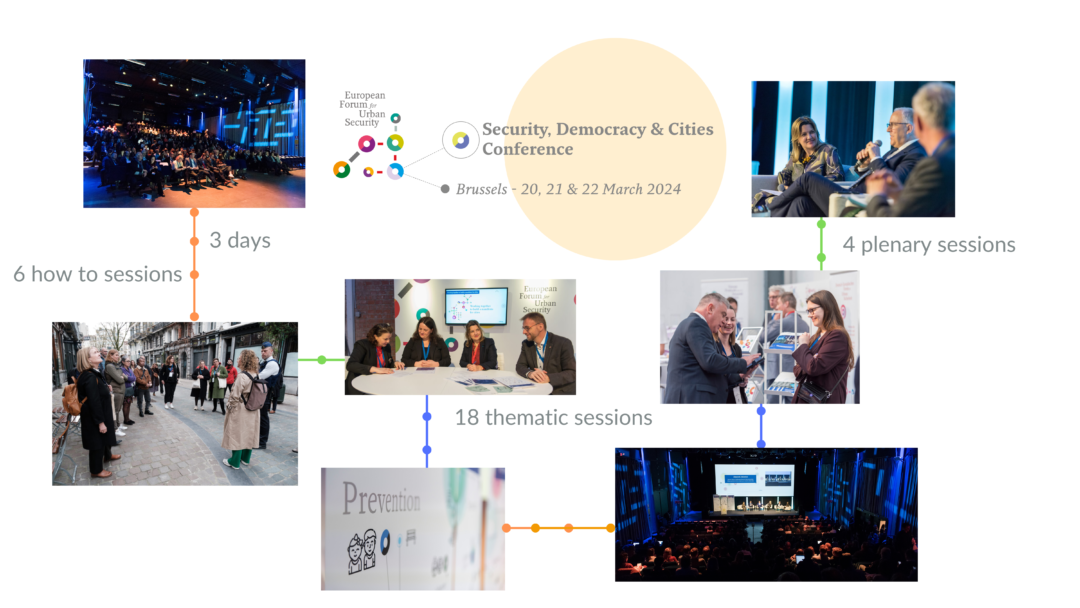 In an interview with Efus, the Mayor of Amsterdam, who recently joined the network, explains what he expects to gain from being a member and why his city is particularly keen to tackle financial and organised crime.
In an interview with Efus, the Mayor of Amsterdam, who recently joined the network, explains what he expects to gain from being a member and why his city is particularly keen to tackle financial and organised crime.
Efus and its members are happy to welcome you in our network. Why did Amsterdam decide to join the Forum?
Jozias van Aartsen: Amsterdam is a great city where to live and work and to visit. However, as a global city Amsterdam experiences global urban issues such as nightlife violence, pickpocketing, drug nuisance, human trafficking and money laundering.
These are issues and challenges that all Efus members experience to a greater or lesser extent, and being a member of the network provides us with the opportunity to learn from each other. Moreover, in many cases collaboration is a necessity, since these problems do not end at the edge of our cities or at our borders. Issues such as drugs, human trafficking, illicit financial flows and radicalisation cannot be solved without international knowledge exchange and collaboration.
Being a member of the Efus networks is an opportunity for the City of Amsterdam to expand our international network and reaffirm existing collaborations.
Amsterdam is particularly engaged in preventing organised crime. Why is
the local level relevant in this effort? What is your approach?
On a global, national and local level, the consequences of organised crime are visible in Amsterdam. We are a global financial hub, and international investors are interested both in settling in the city and investing in real estate, hotels, restaurants and other activities. This raises important questions for the municipality: Who are these investors? And what is the origin of the money they invest?
The consequences of organised crime manifest themselves at a local level, and local authorities do have some tools to prevent this type of crime, for example when it procures permits and/or subsidies, or when the government issues a tender. In these cases, local governments have some powerful tools to screen the applicants by checking whether they have a criminal record, in particular regarding financial malpractice.
Amsterdam is organising the “Flying Money conference – Investigating illicit financial flows in the city” on 22-24 May. Why is it important to work with other European cities on this issue?
Global developments in digital currencies and monetary flows are taking place at breakneck speed. Blockchain, cryptocurrencies, the emergence of parallel banking systems and the decentralisation of monetary transactions impact ideas about the future of money and the banking system, but they also expand the playing field for criminals.
Many cities are increasingly confronted with suspicious investments in real estate, hotels, restaurants, clubs, and other businesses. This phenomenon is particularly urgent in global cities like Amsterdam, where many different monetary flows converge. But in smaller cities these phenomenons might also occur. The thread connecting the various themes of the conference is the question ‘Where do criminals slip through the net?’
The purpose of the Flying Money conference organised by the City of Amsterdam and Amsterdam University of Applied Sciences is to provide answers and gain deeper insights to take the next step forward in tackling illicit financial flows in cities. During the first two days, researchers, developers, journalists, civil servants, artists, NGOs, and business people will debate with each other on stage.
The third day (24 May), the central topic will be how local governments can deal with illicit financial flows in their city. This day is reserved exclusively for civil servants of European cities, regional authorities and national governments who are involved in tackling organised crime. The aim is to further discuss issues of common concern in the challenges we face and and to explore whether to establish a more structured network of European professionals for the exchange of practices, policies and know how.
Being a member of Efus is therefore a logical step for Amsterdam, since we believe the network brings great added value because it gathers like-minded cities and offers expertise, the sharing of best practices, and coordination and collaboration on security issues.
Could you give us examples of innovative practices implemented in Amsterdam that you want to share with other Efus members?
I would highlight two practices:
- Beleidsregel Integriteit en Overeenkomsten (policy on rules regarding integrity and agreements): Amsterdam has put in place an overarching framework to evaluate the integrity of parties involved in business deals under private law agreements. In this framework, financial transparency is an essential condition to determine the integrity risk factor for the municipality. For the administration this means: no transparence, no deal.
- City Deal: On the topic of big data in relation to handling financial economic crime, we are part of the “City Deal” project, which was launched by the cities of Rotterdam, The Hague, Utrecht and Tilburg together with the national police, the Public Prosecution Service, the Ministry of the Interior and Kingdom Relations, the Ministry of Finance, the Ministry of Justice and Security, and Statistics Netherlands (CBS). A research project on real estate fraud and drug-related crime is conducted in each of the partner cities. The aim of this coalition project is to use cutting edge data analytics to gain a better understanding of the characteristics of organised and undermining crime. These comprehensive datasets will be analysed jointly with CBS, and the knowledge gained through this project will be used as input for the development of new instruments.



